A Day in the Life: Vaccination in Mali
Adama Traoré lives in the village of Sadiola, in the Kayes region of Mali in the west of the country. He has been working as a vaccinator in the community health centre of Sadiola for more than 10 years.
"When I was young, we had poor neighbours. One day, one of their kids suddenly started to get pimples on his body, red eyes and a high fever. He had measles and his parents didn't have money to bring him to the hospital and buy him medicine. After a week of suffering, a kind man living in our neighbourhood decided to take him to hospital. He was so lucky to totally recover, but his older brother, who was in the same situation two years before wasn’t as lucky, and unfortunately died. This was the main motivation for me to become a vaccinator."
On the day UNICEF met up to interview him, Adama was going to meet children living in Massakama gold mines.
He decided to become a vaccinator because he wanted to improve the health of the children in his community. "We are in a gold mine area, and many families work and live here, with their children completely isolated and deprived of any care."
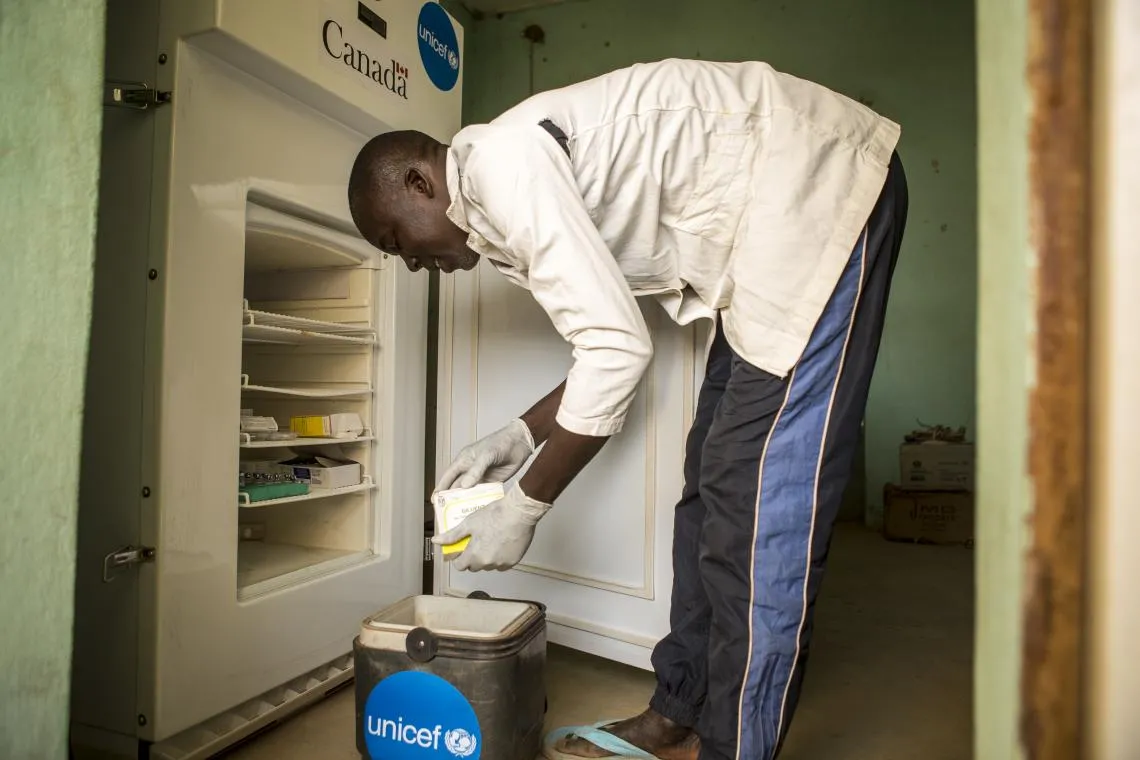
At 7:30 a.m., Adama leaves his house to go on his first stop at the Sadiola community health centre. Once there, he picks up his motorcycle and continues his way to his second stop: getting vaccines at the Kobokotossou community health centre, which is the closest health centre to his final stop, Massakama. Thanks to Canada's support, UNICEF has equipped this centre with a solar fridge to keep vaccines at a consistent temperature.
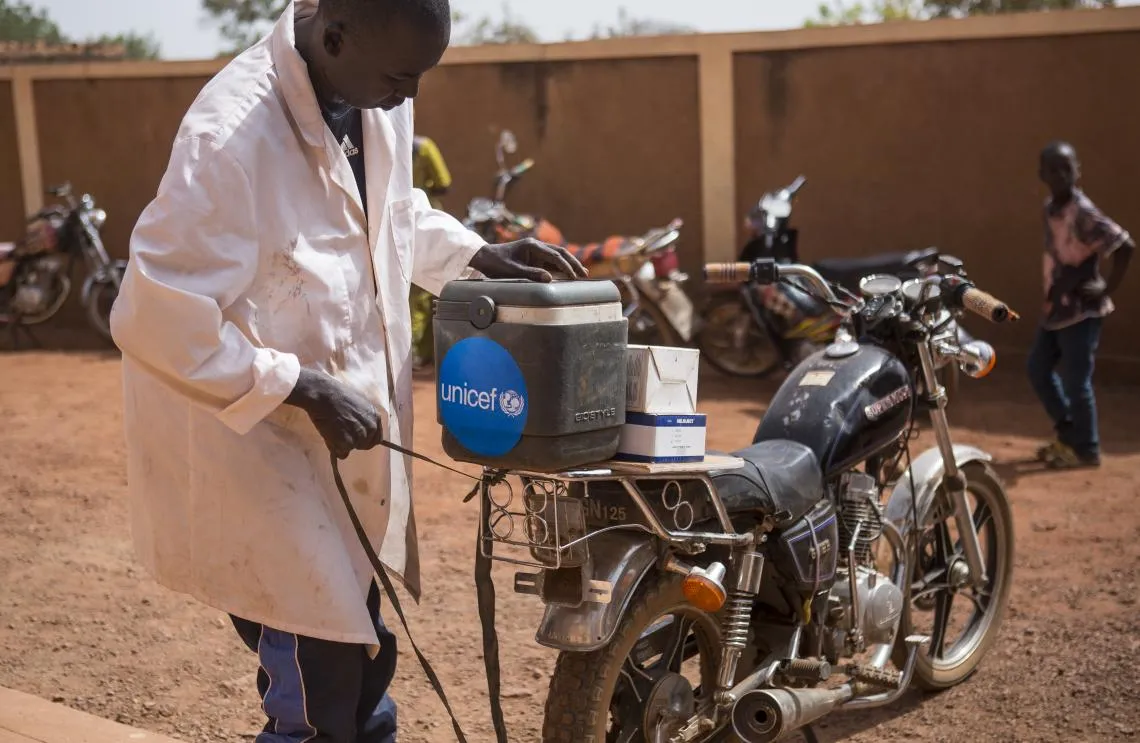
In just the journey to collect his motorcycle and supplies, Adama has already travelled 60 kilometers, but Massakama is still another 50 kilometers away. On his motorcycle, Adama carries his carefully-secured vaccine box, vaccination register and a pack of gloves.
"Before I leave, I make sure that everything is well attached and I check one last time that I’ve packed all of the basic vaccines — pertussis, childhood tuberculosis, tetanus, polio, measles and diphtheria, hepatitis, diarrhea, pneumonia, yellow fever and meningitis — which I might need, because each vaccine can save a child's life.”
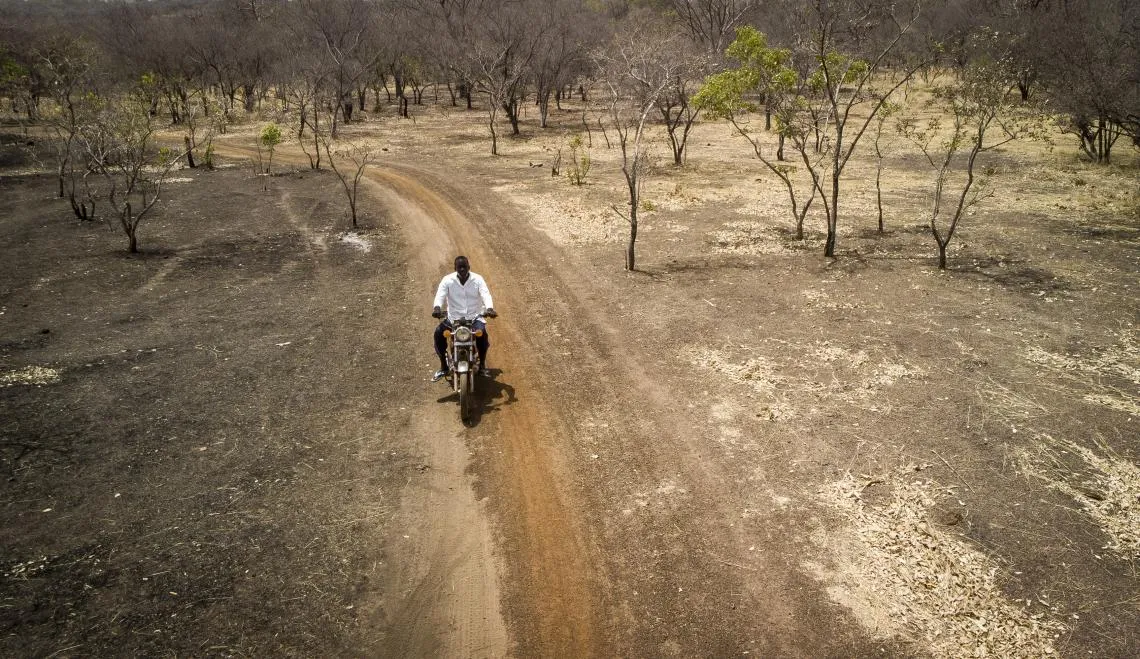
By 8:30 a.m. - under the high sun - the thermometer is already creeping towards 40 degrees Celsius. Adama starts his race against the clock to get to the gold mines in Massakama, vaccinate as many children as possible and return home before the sun goes down. The road he must travel is difficult, isolated and devoid of any infrastructure. It is a dangerous journey.
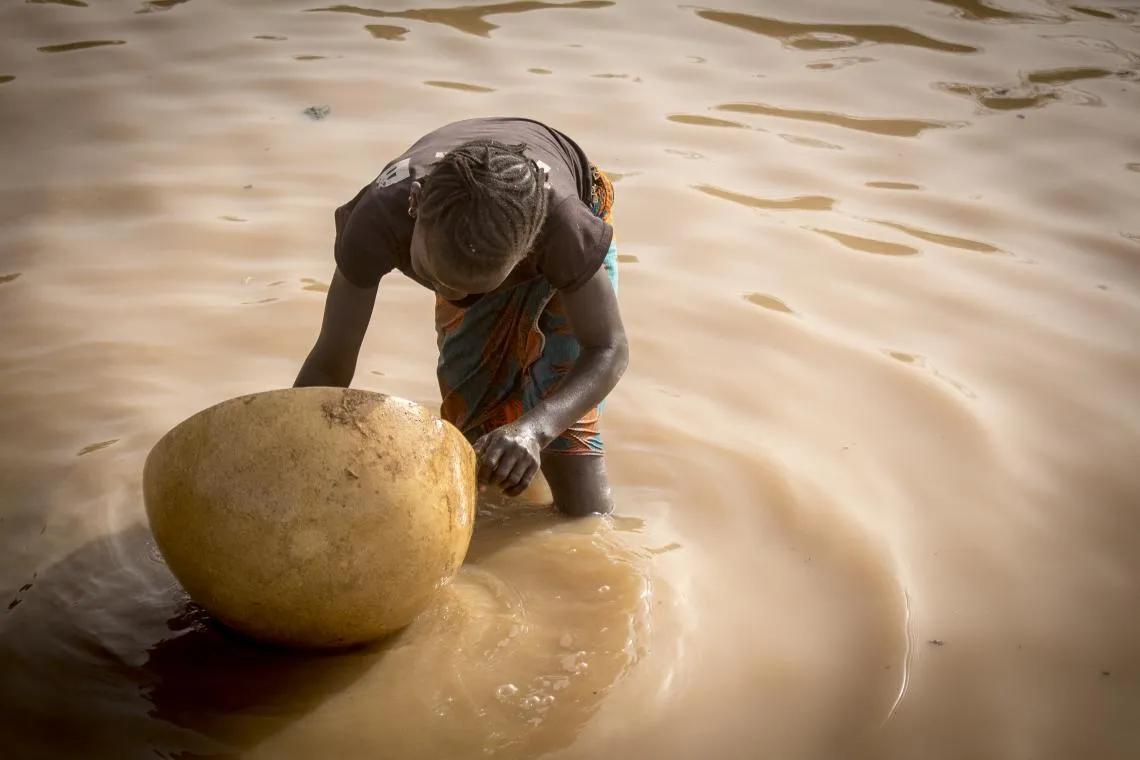
After two hours of driving, Adama finally arrives at Massakama gold mines site, exhausted but determined.
The gold mines of Massakama are near the border with Senegal. More than 2,000 people, including families with children, live at this site every day. There is no school here and no health centre anywhere nearby. With no other options, many of the children here work on the site, deprived of all their rights to protection, education, survival and development. Mariam*, 14, has been working on the gold fields for five years now and has never been to school. "I want to leave here, because I’m tired. My dream is to go to school like my friends."
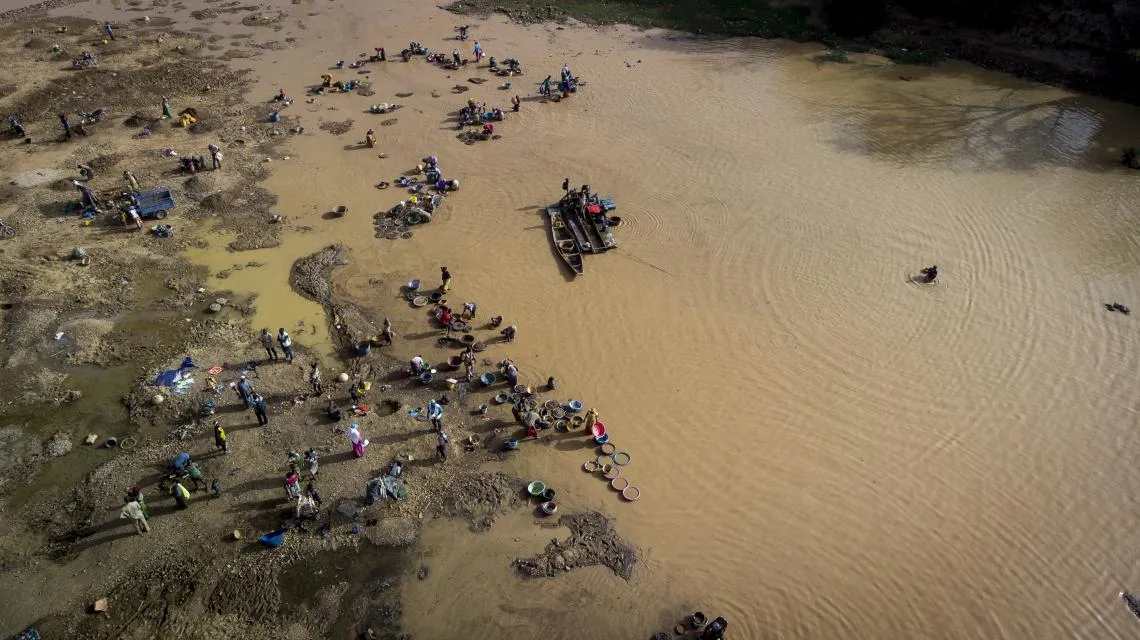
As soon as Adama gets off his motorcycle, mothers and children rush towards him.
"I just started working on the site and my child was never vaccinated,” says a mother of a 6-month-old child. “I heard that there have been cases of measles among three teenagers from Senegal, and that if I don’t vaccinate my child, he might catch the disease and can die.”
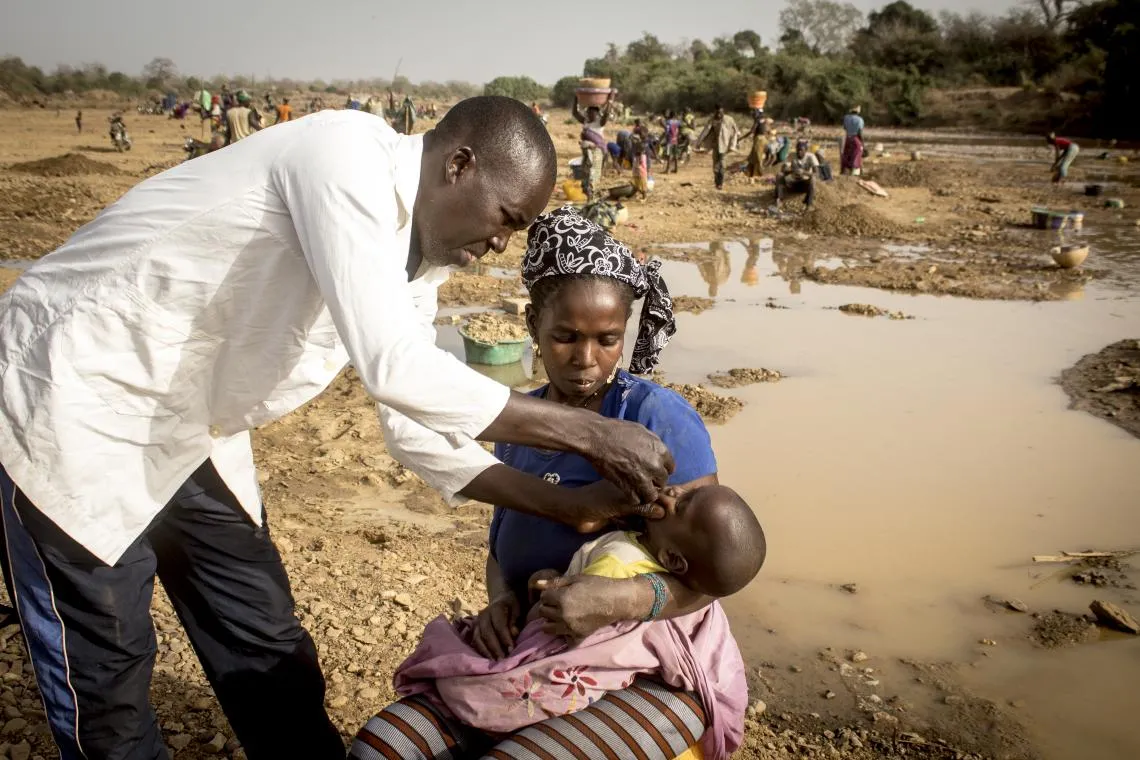
For each child vaccinated, Adama records information in his register. Once his vaccine box is empty, he takes notes on which children will need vaccinations during his next visit.
At 2:00 p.m., Adama lets the parents know that he will return the next week. He puts his equipment back on his motorcycle to return to Sadiola before dark.
"Adama is doing a great job,” says the village chief of Massakama. "Here, parents spend their days looking for gold and do not finish until very late. Without this mobile vaccination activity, most of them will never be able to vaccinate their children."
UNICEF and partners such as Gavi are supporting the Ministry of Health to bring vaccines directly towards the most isolated and vulnerable children. In the Kayes region, only 41 per cent of children receive all the vaccines they require to stay healthy.
